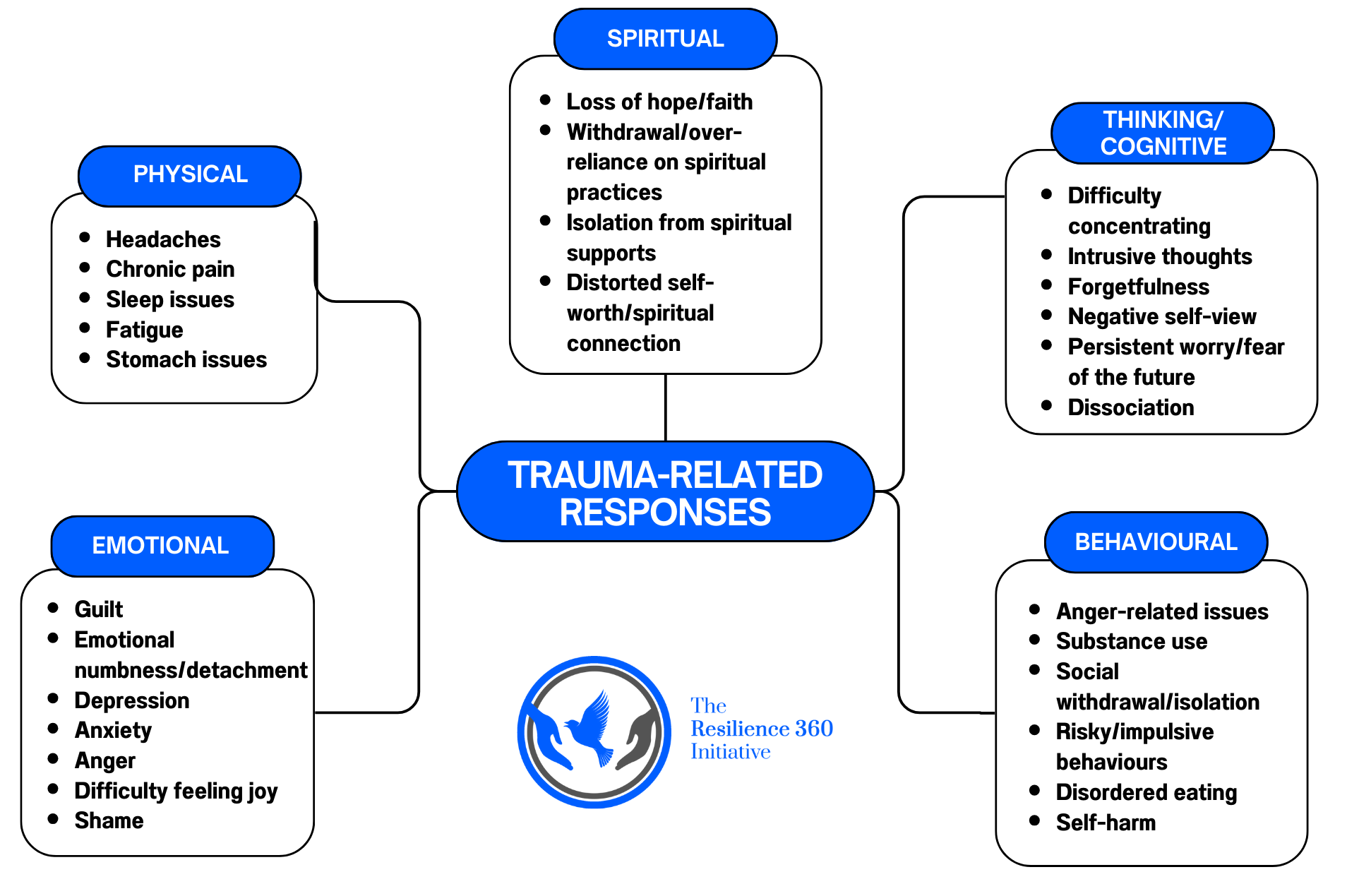Trauma-Related Responses #
In the simplest terms, trauma is a deeply distressing or disturbing experience that overwhelms a person’s ability to cope. It can result from events like accidents, abuse, loss, or anything that feels threatening or emotionally painful. This overwhelming experience can deeply impact a person’s sense of safety, control, or well-being.
Trauma-related responses are reactions in the body that cannot be controlled that happen from experiencing traumatic events like human trafficking. Trauma can affect how we think, feel, behave, and react physically (National Human Trafficking Training and Technical Assistance Center, n.d.). These resilience strategies are unique to each survivor, even among those with similar or shared experiences. Below are examples of trauma-related responses:

Physical #
- Headaches: Persistent pain making daily tasks challenging
- Chronic pain: Ongoing discomfort resistant to relief
- Sleep issues: Difficulty falling, staying asleep, or feeling rested
- Fatigue: Constant exhaustion despite minimal activity
- Stomach issues: Nausea, upset stomach, or digestive problems
#
Emotional #
- Guilt: Feeling responsible for events beyond control
- Emotional numbness/detachment: Disconnection from emotions or surroundings
- Depression: Persistent sadness, hopelessness, or loss of interest
- Anxiety: Constant worry, fear, or nervousness
- Anger: Intense frustration that feels unmanageable
- Difficulty feeling joy: Struggling to feel happiness or pleasure
- Shame: Feelings of unworthiness, embarrassment, or humiliation
Behavioural #
- Anger-related issues: Acting out or difficulty managing temper
- Substance use: Using drugs/alcohol to cope
- Social withdrawal/isolation: Avoiding social interactions
- Risky/impulsive behaviours: Dangerous actions without considering consequences
- Disordered eating: Unhealthy eating patterns like bingeing or purging
- Self-harm: Intentionally hurting oneself to cope with emotional pain
Cognitive (Thinking) #
- Difficulty concentrating: Trouble focusing or following conversations
- Intrusive thoughts: Recurring distressing thoughts
- Forgetfulness: Difficulty recalling important details
- Negative self-view: Seeing oneself as worthless or overly critical
- Persistent worry/fear of the future: Constant expectation of negative outcomes
- Dissociation: Feeling disconnected from reality or observing life from the outside
#
Spiritual #
- Loss of hope/faith: Feeling disconnected from values or purpose
- Withdrawal/over-reliance on spiritual practices: Avoiding or overly depending on rituals for decisions
- Isolation from spiritual supports: Cutting ties with faith communities or spiritual figures
- Distorted self-worth/spiritual connection: Feeling undeserving of love, care, or spiritual belonging












